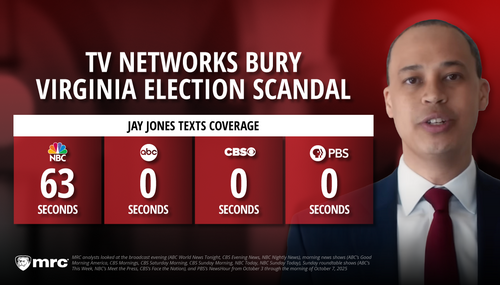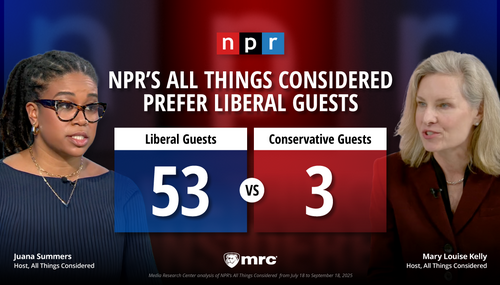Some times, real surprises arrive in your e-mail, such as: Newsweek's International Edition welcomed the New Year with an article titled "Iraq's Economy Is Booming." Nobody noticed this "mother of all surprises" in America, since the article wasn't placed in front of domestic customers (it is online). Why not? Liberal, Bush-hating politics, perhaps? Despite the often-reported violence and terrorism, Newsweek's Silvia Spring asserted "there's a vibrancy at the grass roots that is invisible in most international coverage of Iraq."
Canadian columnist Neil Reynolds noticed Spring's piece in Toronto's Globe and Mail:
OTTAWA -- More than U.S. troops are surging in Iraq. As the international edition of Newsweek magazine reported at year-end, the Iraqi economy is expanding at a rapid rate: "Civil war or not," writer Silvia Spring says, "Iraq has an economy and - mother of all surprises - it's doing remarkably well." Amid anarchy and savage violence, Iraq's construction industry is booming.
Retail and wholesale trade sectors are thriving. Real estate prices are soaring - up by several hundred per cent in the past couple of years. Iraqi oil production (at two million barrels a day) approaches Venezuelan production (2.4 million barrels a day) and could easily double in the next few years. On average, Iraqis earn 100 per cent more, in real terms, than they did under Saddam Hussein.
Public opinion surveys indicate that Iraqis are now, in economic expectations, at least, expansively optimistic.
Newsweek describes Iraq's economic revival as a product of "vibrancy at the grassroots." Three years ago, Iraq had 8,000 registered companies. Last year it had 34,000. Two years ago, Iraqis owned 1.4 million cellphones. Last year, they owned 7.1 million. (Iraqna, the country's leading mobile phone company, reported revenue of $333-million [U.S.] in 2005, $520-million in 2006.) Baghdad now has five times as many cars as it had before the war.
Global Insight, the economic research company, puts Iraq's GDP growth for 2005 at 17 per cent and for 2006 at 13 per cent. "The U.S. wanted to create the conditions in which small-scale enterprise could blossom," the magazine quotes Jan Randolph, head of sovereign risk at Global Insight's office in London. "In a sense, they've succeeded."
None of this lessens the horrors of the savage insurgency in the infamous Sunni Triangle. But none of it warrants suppression of Iraq's economic boom, either, yet it remains an "invisible" story, as Newsweek puts it, in most international coverage. Take unemployment as a single example. Are Iraqis underemployed? Inefficiently employed? Dangerously employed? Absolutely. But are 50 per cent of Iraqis unemployed - or indeed, as some reports have it, 70 per cent? Newsweek itself says that Iraq's unemployment rate "runs between 30 per cent and 50 per cent." Yet this kind of guesswork was disproved in mid-2005 when a comprehensive research study, using International Labour Organization definitions and standards, put Iraq's unemployment rate at 10.1 per cent.
In an assessment of Iraqi unemployment for the U.S. Congress, Rand Corporation researchers declared that bloated estimates of Iraqi unemployment were "seriously flawed," that the country possessed "an economically active, albeit poor, male citizenry." The report calculated the labour force participation rate for Iraqi men at 69 per cent. (By comparison, the rate for Canadian men is 73 per cent.) The participation rate for Iraqi women, however, was 13 per cent - a similar percentage, the report noted, "to the participation rate [for women] in all of the Arab countries of the Middle East and North Africa."
Contrary to the TV image of Iraqis men loitering around the wreckage of bombed cars, the Rand report described an enterprising people with an almost heroic work ethic. By far, it observed, most Iraqis were self-employed in private sector work, many holding more than one job. "The problem in Iraq isn't unemployment," the report said. "It's poverty."
Eighteen months later, there's more money, more merchants, more motion. The Newsweek report describes the same entrepreneurial spirit that the Rand report identified - but portrays a nation on the move: "Roadside bombs account for fewer backups than the sheer number of second-hand cars that crowd the nation's streets. Cheap Chinese goods overflow from shop shelves, and store owners report quick turnover. Ordinary Iraqis are not short of cash [and] they are now spending."
You can credit, in part, L. Paul Bremer, the onetime U.S. administrator in Baghdad who deftly imposed a flat-rate tax of 15 per cent on personal and corporate income in 2004. (Saddam Hussein's rates had reached 75 per cent.) You can credit, in part, the maligned Iraqi government, which has endeavoured, slowly and awkwardly, to liberate the country's highly centralized, bureaucracy-bound economy. (The ousted Baathists - Arabic for "Resurrectionists" - were, after all, national socialists.) Among all these liberal, market-driven reforms, the most important has been Iraq's cautious momentum toward world market prices for gasoline and diesel fuel.
A year ago, Iraq still sold gasoline to Iraqis for a penny a litre. Smuggled into Turkey, the penny-worth of gas became an asset worth a dollar, producing a hundredfold return. The long lineups for gas across Iraq became an apparently permanent symbol of the country's inability to pump enough gas for its own consumption. By some estimates, the gas price subsidy, along with the corruption it induced, cost Iraq as much as 40 per cent of its oil production and more than 10 per cent of its entire GDP. But criminal profits, as much as righteous profits, can drive economic growth.
Iraq now has its domestic gas price up to 14 cents a litre.
Newsweek editor Jon Meacham may have also disliked the Spring article's ending:
In a business climate that is inhospitable, to say the least, companies like Iraqna are thriving. The withdrawal of a certain great power could drastically reduce the foreign money flow, and knock the crippled economy flat.




